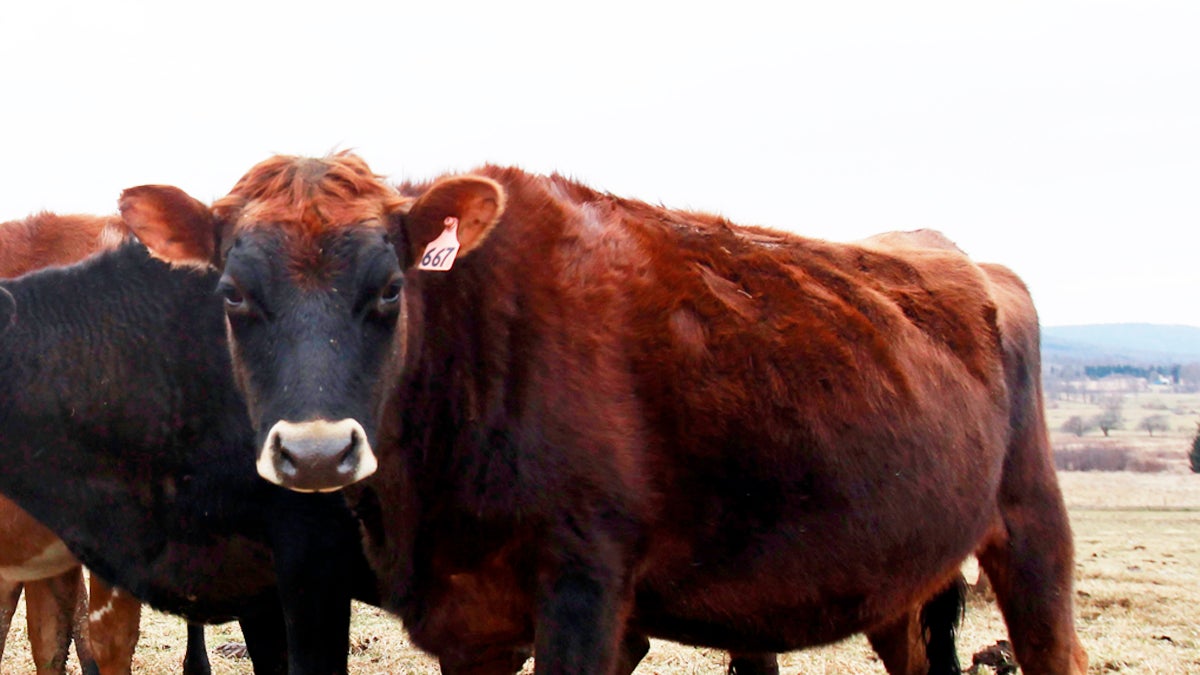What killed the cows of Tioga? Case remains a whodunit

FILE - In this Feb. 2, 2012 file photo, organic dairy farmer Siobhan Griffin stands in a field with her cows a field at Raindance Farm in Westville, N.Y. While other states are reaping the wealth of the Marcellus Shale, New York has had a moratorium on drilling for four years while it overhauls regulations amid intense lobbying for a ban. Griffin, who raises grass-fed cows and sells organic cheese, doesnÕt see gas as the answer. Rather, she fears for her cows if drilling comes to neighboring leased land. She points to Pennsylvania, where 28 cows were quarantined from sale after they drank wastewater, and Louisiana, where 17 cows died after drinking contaminated water. (AP Photo/Mike Groll, File)
In spring 2010, cattle from a Tioga County farm were quarantined after coming in contact with wastewater from natural gas drilling. How are they doing now?
After drilling wastewater leaked onto a cow pasture in Tioga County, eight of the 11 calves born that spring did not survive their first year.Dr. Michelle Bamberger, a veterinarian in Ithaca, New York, has studied the case.“They suffered losses on that second season which were amazingly high,” she said, “but after that, and now we’re into the third or fourth season, they’re doing just fine. Their cows look great, no reproductive problems. So they’re very, very happy.”Bamberger says this was the only case in the country where a herd was quarantined over concerns about drilling wastewater. At the time, the Pennsylvania Department of Agriculture worried the beef could be contaminated.It’s not known whether the cows actually drank the wastewater or whether the wastes caused the deaths of the calves. But the case has prompted scientists like Bamberger and her research partner, Dr. Robert Oswald, to keep studying the impacts of natural gas drilling on animal and human health.Oswald is a professor of molecular medicine at Cornell. Cases like the Tioga cows are outliers that get headlines, he said, but other impacts need to be studied in the long-term:“There are many, many pathways of exposure through the air, through the water, through the soil, through the food.”
Bamberger echoed his concern: “We have no idea what’s in this stuff and what contaminants could be picked up by the plants and then farmed and then fed to cattle andthen fed to people or fed to people directly, so I’m very concerned.”Oswald says modern gas drilling is too new for researchers to draw any stable conclusions. So case studies like this one are all they have to go on.
WHYY is your source for fact-based, in-depth journalism and information. As a nonprofit organization, we rely on financial support from readers like you. Please give today.

